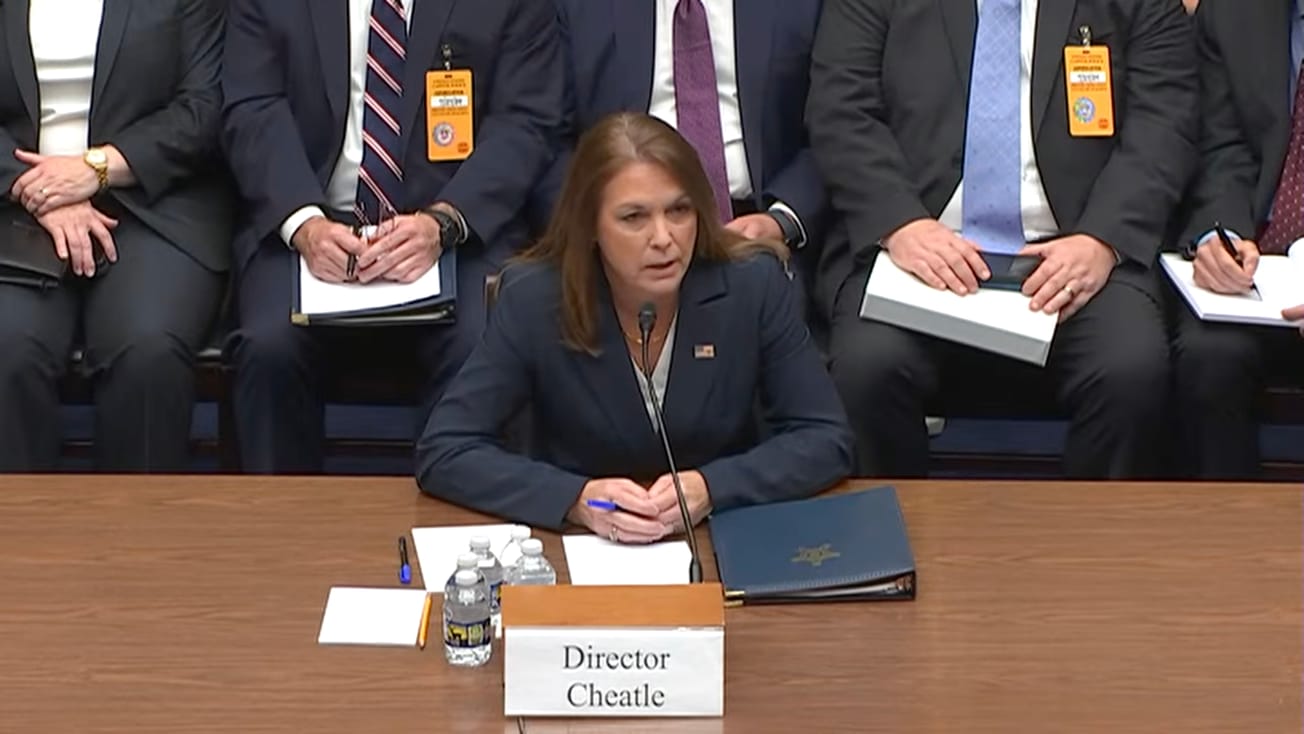“We are absolutely on a road to a global war if we don’t change,” Helga Zepp-LaRouche told the 33rd weekly meeting of the International Peace Coalition today. “We know what should be put on the table … a comprehensive Middle East peace plan with a two-state solution, ceasefire, an Oasis Plan for economic reconstruction for the entire region.… The same naturally goes for Ukraine.… Ukraine needs economic reconstruction to rebuild their economy, which can only happen if we get the European countries to work with the Belt and Road Initiative and invite the United States to be part of it.”
Only a global vision can succeed: “The new security and development architecture which we absolutely have to get to, has to take into account the interests of every single country, and not leave anybody outside, because otherwise it does not work.”
Without such a change, the risk of explosive conflict is immense and growing, as seen in the assessments by NATO leaders that direct military conflict with Russia is all but inevitable.
South Africa is expected to succeed in obtaining from the International Court of Justice an order for provisional measures against Israel, famed legal expert Professor Francis Boyle, who himself successfully brought several actions at the ICJ against genocide in the 1990s, told the meeting. One escape hatch remains open—the issue of whether a formal “dispute” existed between the two nations, which is a requirement under the Genocide Convention for ICJ intervention. Attorney Malcolm Shaw’s argued for Israel that no such dispute existed at the time of the case filing, suggesting a potential technical invalidation of the case. Former U.K. Ambassador to Uzbekistan Craig Murray observed that the ICJ judges seemed intrigued by this argument as it could provide a technical way out of the case without addressing the genocide allegations directly. But Professor Boyle refuted Shaw’s argument, citing his own successful experience in a similar case where a formal dispute was not a prerequisite for ICJ action.
In a sense, the Court itself, and many international institutions, are on trial, even more than Israel. Will the legacy centers of power in the world acknowledge and act to stop the barbaric destruction of Gaza? Or will the remaining wisps of moral authority held by the trans-Atlantic nations be entirely swept away?
There is reason for hope, as pressure for a change in policy from within Anglo-American NATO continues to mount.
An open letter, yesterday, signed by legislators from the U.S., Canada, and Germany calls “for a ceasefire in Gaza and a new push for a durable resolution to the Israeli-Palestinian conflict.” So far, 12 members of the U.S. House of Representatives, 20 deputies of the German Bundestag, and 19 members of the Canadian Parliament have signed the document, titled “Open Letter: Ceasefire Now: Avert Humanitarian Catastrophe, Advance the Two-State Solution.”
Meanwhile, new avenues and topologies of diplomacy and international relations are expanding.
Diplomatic efforts by BRICS nations, particularly Russia, China, and India, are impacting the situation in the Red Sea. A Houthi-led Ansarullah Movement representative in Yemen declared that Israeli and Israel-associated ships would continue to be targeted, while ensuring the safety of ships from such other countries as Russia and China. India has maintained its independence from the U.S.-led coalition, and emphasized its efforts to secure Indian shipping without joining any multilateral alliances.
India is also 2024’s first recipient of a loan from the BRICS’ New Development Bank. A road project in Gujarat is being financed by $500 million worth of dollars and rupees. The NDB aims to issue $3 billion worth of rupee-denominated bonds over 2024-2028, further expanding its potential operations.
An advantage not to be overlooked is that the physical universe cannot be fooled by sophistry or wishful thinking. Despite significant global investment in intermittent, low-intensity power sources marketed as “renewable,” the contribution of this sector to global electricity generation remains meager. Between 2019 and 2023, $7.2 trillion was invested in renewable energy sources, compared to $3.85 trillion in fossil fuels. But in 2023, renewables accounted for only 17% to global electricity generation and an even lower 6% of total energy production. Instances in Texas and Alberta during extreme winter conditions highlighted the heavy reliance on natural gas and coal, with so-called “renewables” like solar and wind contributing minimally to energy production during these periods.
A prosperous world with levels of productivity an order of magnitude beyond those of the present requires the higher energy potential of the atomic nucleus used right here on Earth, rather than relying on the scanty emanations from our nuclear-powered Sun. The kind of agricultural-scale water desalination envisioned through controlled nuclear fusion will fundamentally change our relationship to arid regions of the planet, such as the area popularly called the Middle East.
Real security for the future comes not in being able to defeat your neighbors in bloody strife; it comes from being able to supply hearth and home with energy, food, productivity, progress, and purpose.









